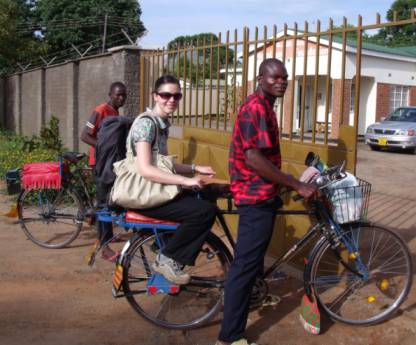
There are a couple of options for where we do the Progress out of Poverty Index, either in group meetings or in the client’s home. Today I spent the morning working with Kasungu’s branch manager, Olivine, training her how to implement the Index in the client’s home and doing role plays. We’re going to be carrying out one set of pilots here at the Kasungu branch so Olivine’s input will be crucial.
It’s not just the clients who have inspiring stories to tell. Olivine started working for MicroLoan as a branch office assistant eight years ago when MicroLoan was just starting out, and has worked her way up to loan officer and then branch manager. She has seen the charity grow and has herself grown with it, and really understands MicroLoan and its clients. She says, “as long as MicroLoan is around I will be around. I am very proud of how MicroLoan has grown. My favourite thing about working for MicroLoan is working with the women, particularly helping them to develop their businesses to improve their lives. When a group is struggling I don’t give up, I keep coming back until they realise I am not going anywhere. I encourage the women.”
.jpg)





